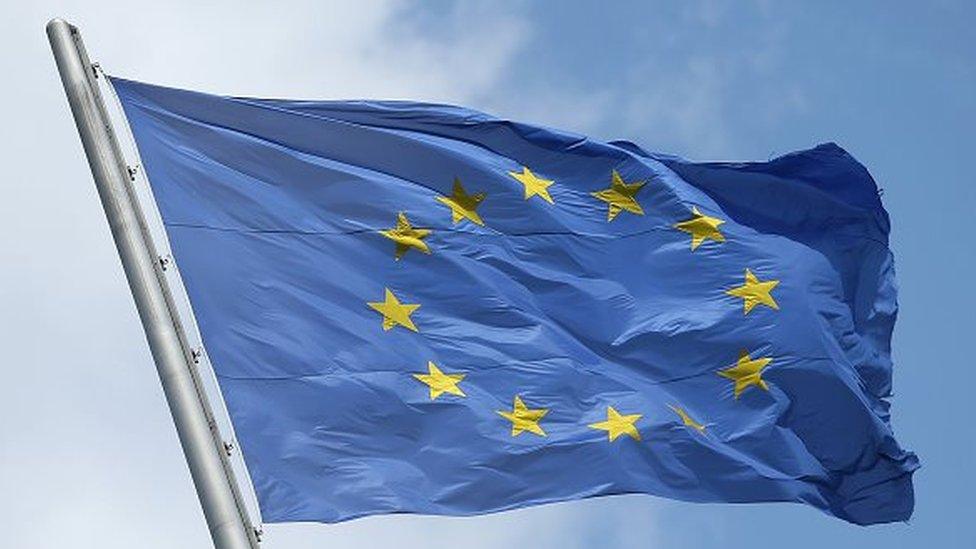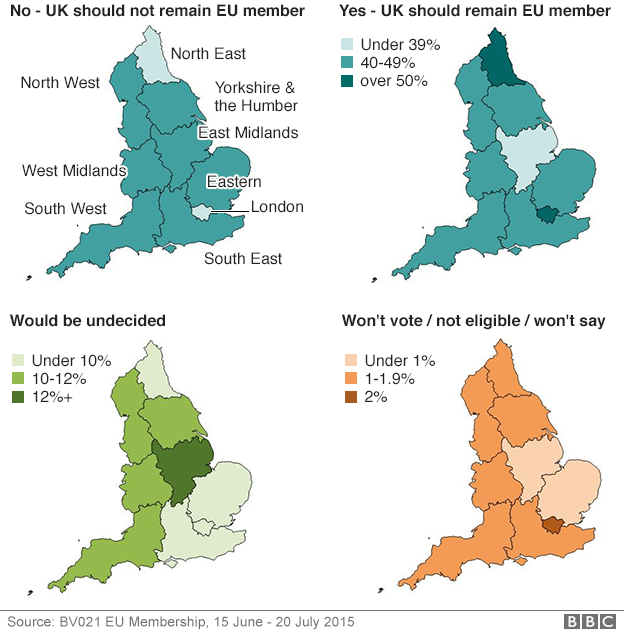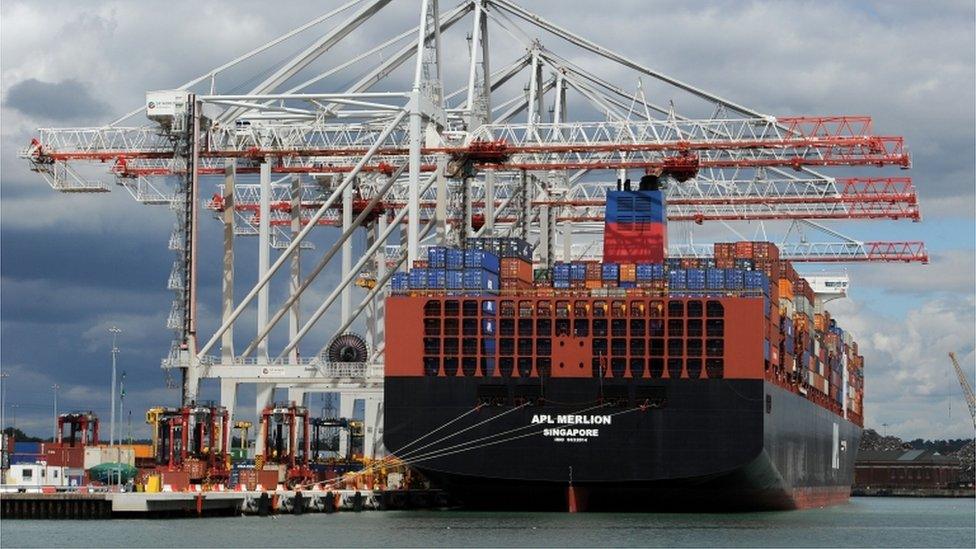Small firms split over European Union referendum vote
- Published

Small UK firms are split over whether to stay in the European Union or not, according to a survey of thousands of businesses.
A Federation of Small Businesses (FSB) report found that 47% of members would vote "yes" and stay in, and around 41% would vote to leave.
There were geographical differences - about 60% in Scotland would vote "yes".
But a clear majority of firms felt they did not have access to unbiased information.
A slim majority of firms - 50.5% of FSB members - said the UK's existing EU membership was good for the economy as a whole.
However, only 34.9% thought it was good for their individual businesses.
How would English firms vote on EU membership by region?

FSB members across the English regions were asked: Imagine that the referendum on whether the UK should remain a member of the EU was held today. Based upon the information you know today, how would you vote?
Red tape
Business owner Herbert Eppel, who runs a technical translation business, was firmly in favour of the UK staying in the EU.
"Leaving would have a significant impact [on businesses]," he told the BBC. "It would lead to additional bureaucracy, time, cost, effort and hassle. Everything is working pretty smoothly at the moment."
He added that withdrawal would affect firms that directly import and export goods to the EU, and also peripheral UK businesses that rely on those firms.
But Kelly Morris of Balgonie Castle Enterprises, an events firm, said business would be easier if the UK voted to leave.
"We see the hindrance of EU regulations... the red tape and bureaucracy," she said. "Now they're talking about having to have low-powered vacuum cleaners. That's ridiculous."
She added that the UK does not seem to get "value for money" from its contribution to the EU budget.
Uneven picture
Less than half of firms said they felt they had a full grasp about the possible effects on business and the UK economy of a Brexit, and said there was "a need for clear unbiased information" from the media.
There were fairly large geographical variations in opinion on which would be the best way to vote. Almost 60% of firms in Scotland would vote "yes", and firms in Wales and Northern Ireland were also more likely to agree that there is a benefit from EU membership than those in England.
There were also significant regional variations in England. Firms in London and the North East would be more likely to vote "yes" than firms in the East Midlands, for example.

Opinion is divided on the effect a 'Brexit' would have on trade
In general, firms which relied on EU imports and exports were far more in favour of a "yes" vote, while companies which did not rely on trade were less likely to see the EU as beneficial.
The possible effect of a "Brexit" on trade has been a concern for some analysts, too.
In June ratings agency Moody's said that a withdrawal from the EU "would worsen the UK's trade position and, through that, medium-term growth."
Investment would be negatively affected, and there would be "a hollowing-out of export sector employment and capital" in the short term, it said.
Trade threat
But some analysts say the threat to trade is overblown.
Vicky Redwood, chief UK economist for Capital Economics, told the BBC: "There is a very good chance of a free trade agreement being formed to maintain a good flow of trade."
If the UK were outside of the EU, it could press ahead with free trade agreements with other countries without having to wait for trade negotiations at an EU level, she said.
There may be some barriers being outside of a single market, but not significant ones, she added. Trading nations outside of the EU such as the US manage to export and import, she said.
In addition, if the EU imposed trade tariffs, it "wouldn't be that bad", she said - the current tariff is 4% and falling. Exporters already face big exchange rate movements of more than that in a year.
Lucy Thomas, campaign director of Business for New Europe, a "yes" campaign group, said:
"Once again UK businesses have made clear that they support Britain remaining a member of the European Union.
"The report from the Federation of Small Businesses highlights the deep concern that many of its members have about a possible British exit."
But Robert Oxley of Business for Britain, a "no" campaign group, said: "Being part of an unreformed EU means that we lose control over key parts of our economy, costing businesses and ultimately jobs."
- Published15 September 2015

- Published30 December 2020
